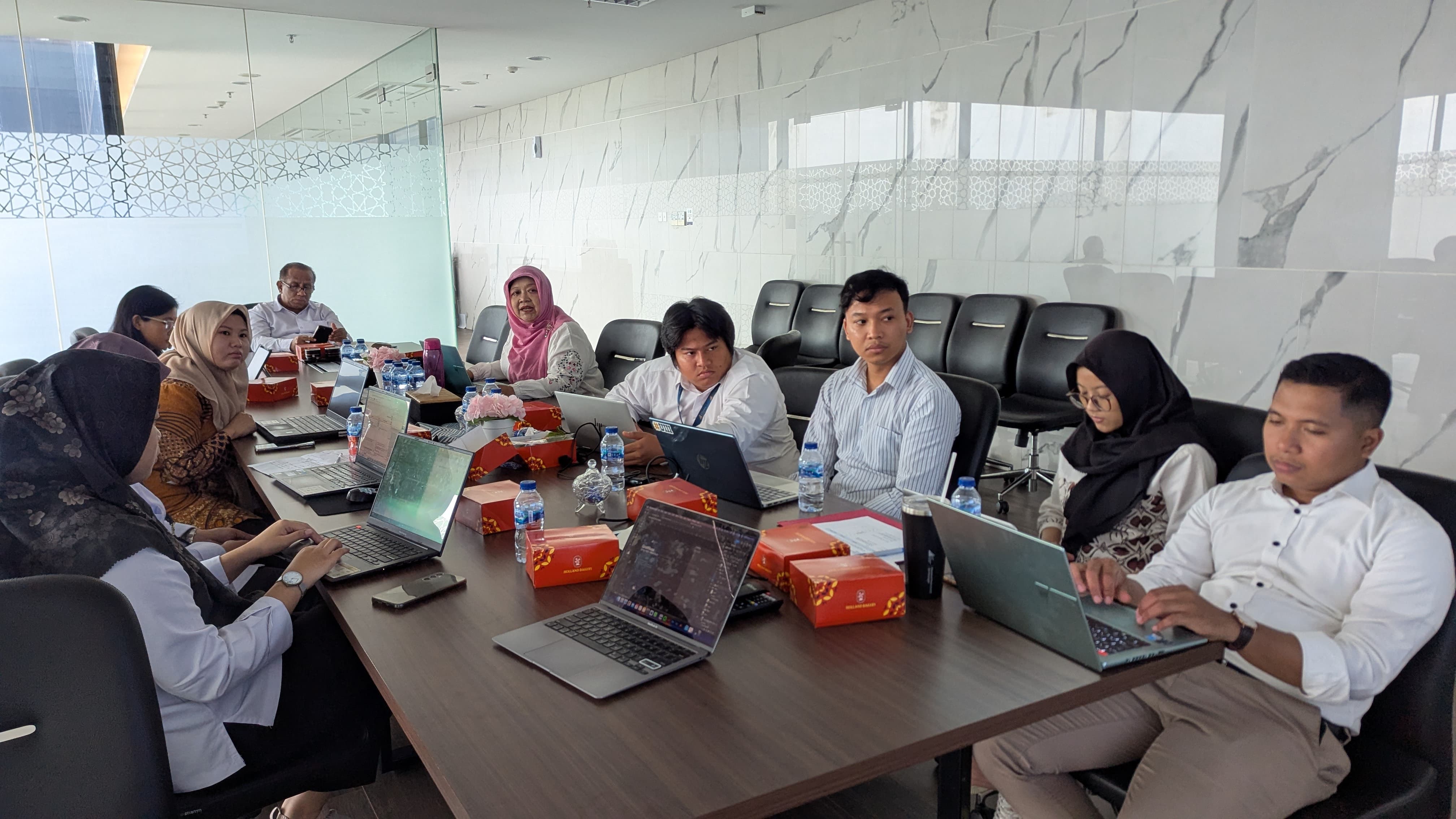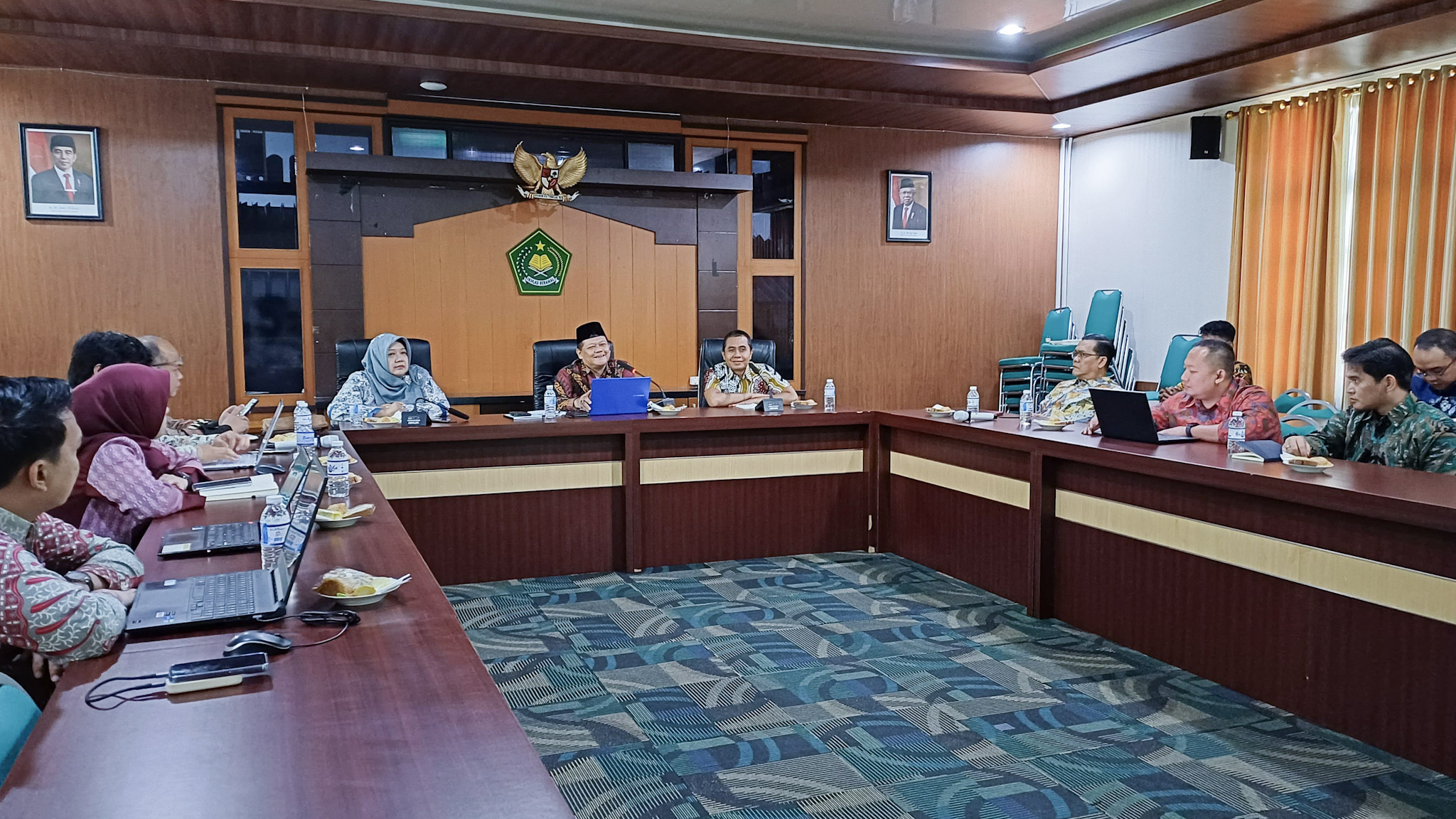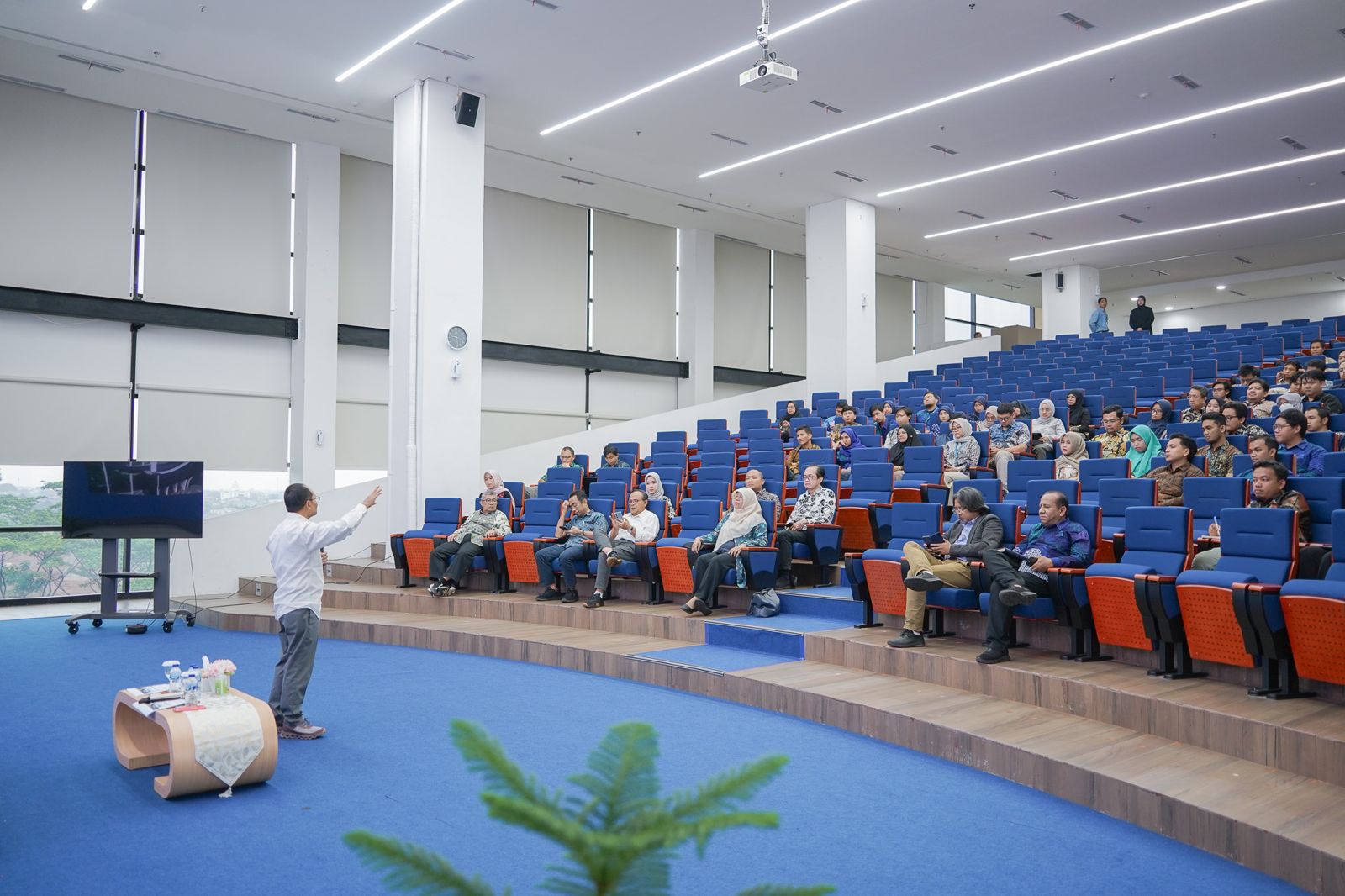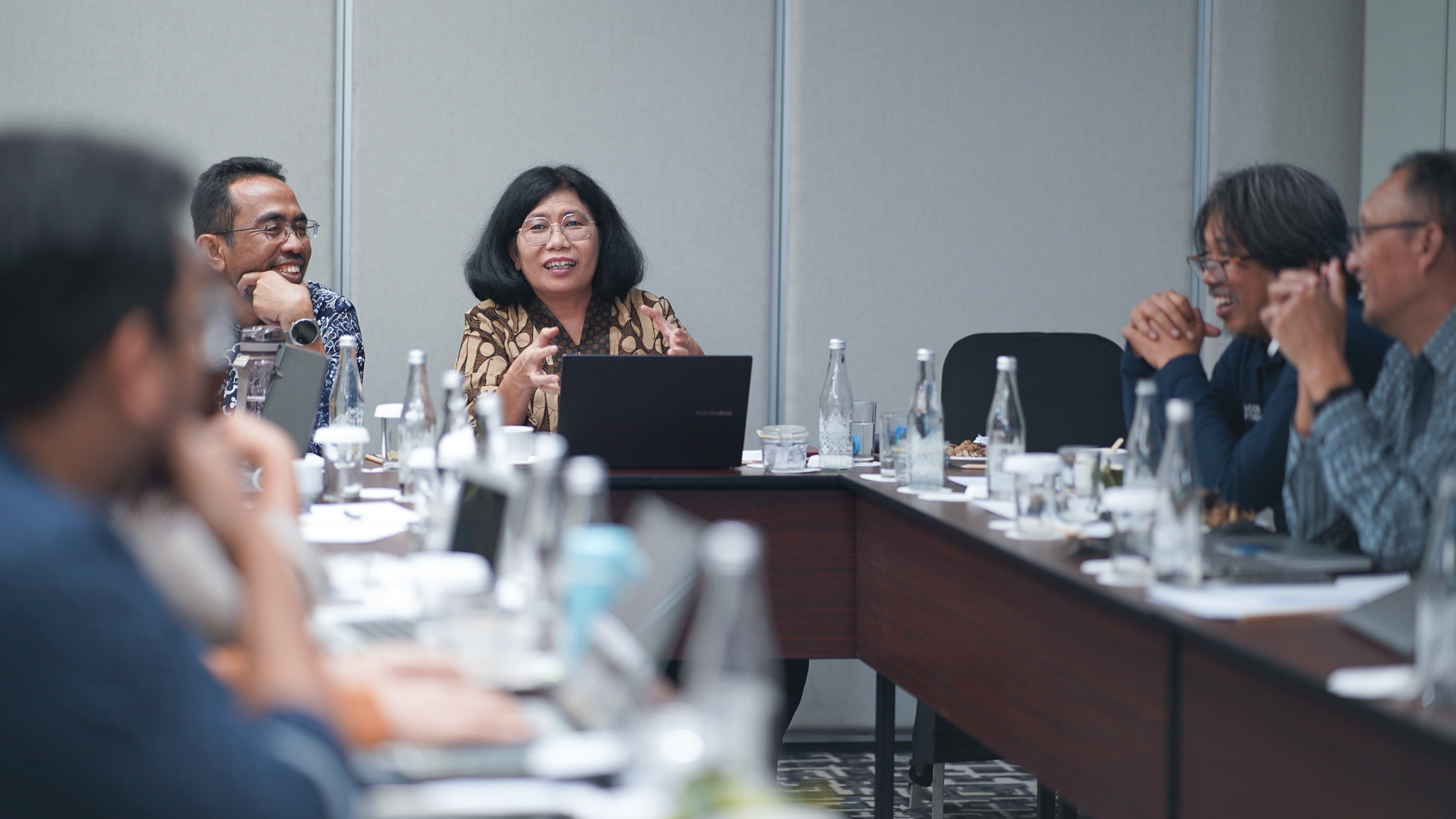UIII Strengthens Efforts to Establish Integrity Zone
December 19, 2024Contributor: Dadi Darmadi | Photo: Achmad Jatnika

Depok, Indonesia – Universitas Islam Internasional Indonesia (UIII) is taking significant strides toward achieving Integrity Zone (Zona Integritas) certification to attain WBK (Clean Bureaucracy) and WBBM (Serving Bureaucracy) status. On November 19, 2024, the university hosted a comprehensive monitoring meeting led by the Directorate General of Islamic Education from the Ministry of Religious Affairs (MORA).
Held in UIII’s Board of Trustees meeting room on the fifth floor of the Rectorate Building, the meeting brought together key UIII staff and representatives from MORA’s Directorate to review progress and outline steps for further reform.
Focus on Change and Transparency
Key discussions led by Diana Fitri Dahli, ST, Secretary of UIII’s SPI (Internal Supervisory Unit), emphasized several critical areas:
- Change Management: UIII is committed to aligning its work programs with Integrity Zone objectives, including performance monitoring and evaluation for 2023 and 2024.
- Operational Reforms: Anti-gratification initiatives will be prominently displayed on campus, both online and offline, to promote transparency and ethical practices.
- Public Services: Efforts to enhance service accessibility and inclusivity include introducing disability-friendly facilities and conducting satisfaction surveys for students and staff.
Support from the Directorate
Nanik Rahmawati, representing MORA’s Directorate General of Islamic Education, highlighted the importance of proper documentation and compliance with Integrity Zone requirements. “All submissions must be complete, signed, and ready for nationwide submission by December 29,” she noted.
Nanik also stressed the need for better communication of SPI’s role to the university community through official channels and social media, ensuring awareness of UIII’s internal monitoring systems.
Next Steps
UIII’s commitment to integrity and public service is evident in its proactive approach. The university plans to document evidence of reforms, including anti-gratification campaigns, public service satisfaction data, and operational updates.
This initiative positions UIII as a potential model for other institutions aiming to achieve WBK and WBBM accreditation, reflecting its dedication to fostering transparency and accountability in higher education governance. []
- UIII Extends Application Deadline for 2025 International Admissions
- What Does Eid al-Fitr Mean for the UIII Academic Community?
- UIII PhD Scholar Ararat Kostanian Delivers Lecture at Armenia's Yerevan State University
- Swedish Ambassador to Indonesia Applauds UIII’s Vision, Explores Future Collaboration
- Depok Mayor Supports UIII as the Green Lung of Depok and Beyond
- Depok Mayor Pledges to Build Performance Hall at UIII
- New Parking Facility Launched, Part of UIII-Sentra Medika Hospital Partnership
- Yogyakarta’s UII Won 1st FisFastFest’s Clash of Campuses
- Vice Minister of Religious Affairs Praises UIII as a Global Hub for Islamic Education
- Hurray!! UIII Wins Football Championship


